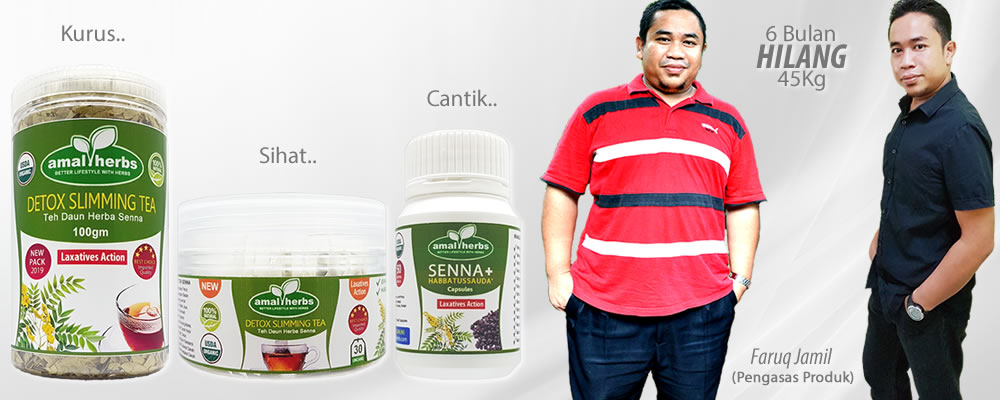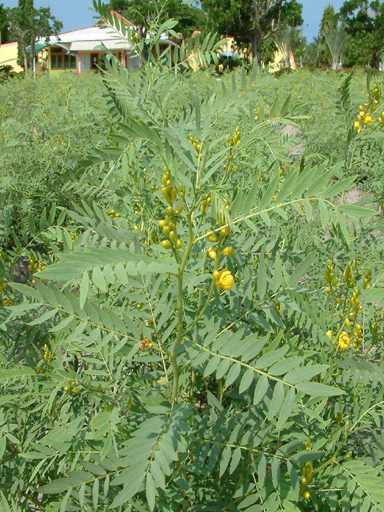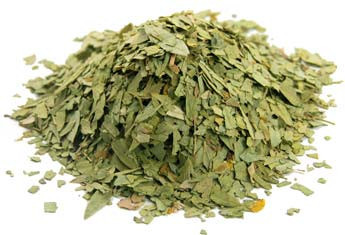
There are no more items in your cart


KESAN SAMPINGAN
Setiap pengambilan apa pun herba ada kesan sampingan, tetapi herba senna lebih banyak kebaikan daripada keburukan.
Antaranya kesan sampingan mengambilan adalah jika usus perut bermasalah anda akan mengalami cirit birit, ini adalah kesan yang baik kerana ia proses mencuci dan menyingkirkan toksin didalam usus perut.

Senna Mecca atau daun Jati Cina (nama saintifik: Cassia Angustifolia) merupakan daun herba yang mempunyai nilai-nilai perubatan yang tinggi bagi masyrakat Arab sejak kurun ke-9. Sanna digunakan untuk mencuci system usus kecil dan besar dari kotoran dan lemak, serta membuang toksin dalam perut melalui sistem pelawasan. Kegunaan Sanna telah dicatat didalam kitab perubatan Ayurveda dan perubatan tradisional Cina memanggilnya sebagai “Fan Xie Yie”. Pertubuhan Kesihatan Sedunia (WHO) menyenaraikan Sanna antara herba perubatan terpenting yang sangat berkesan dan selamat untuk sistem kesihatan.

Variasi nama Senna mengikut negara:
Arab: Senna Mecca
Mesir: Senna Alexandrina
Chinese: Fan Xie Yie
Latin: Cassia Obovata
Melayu: Jati Cina
Hindi: Sennai
Sejarah Penggunaan
Senna, Cassia angustifolia, dikenali dengan nama Senna Mesir. Merupakan spesies dari keluarga Leguminaceae, senna adalah tumbuhan yang renek dan telah digunakan selama berabad-abad lamanya di Timur dan Barat sebagai pencahar. Herba sanna diperkenalkan oleh doktor Arab yang berkhidmat dengan khalifah di Baghdad pada kurun ke-9 masihi. Herba ini merupakan herba terpenting dalam perubatan Yunani, perubatan traditional Cina dan perubatan traditional India (Ayurvedic). Masyarakat Afrika Utara dan juga barat daya Asia menggunakan Sanna sebagai herba pelawasan (laxative) bagi mencuci usus perut. Selain itu, daun Sanna boleh digunakan sebagai pes untuk mengubati penyakit kulit, kurap dan juga jerawat.
Herba sanna berdaftar secara rasmi di British Pharmacopoeia (merupakan buku rasmi dalam bidang farmasi yang mengandungi penggunaan dan tatacara/guna herba) dan United States Pharmacopoeia. Tambahan, herba ini adalah salah satu daripada herba yang diluluskan oleh “Food and Drug Administration” Amerika sebagai dan menjadi herba yang paling banyak digunakan di Amerika terutama dalam “minuman pelangsing”, “minuman kurus” dan “minuman untuk detoksifikasi”. Di Jerman, daun dan buah Senna merupakan ubat standard, di German Pharmacopoeia dan diterima di Commission E monographs.
Tamadun India – Perubatan Ayurvedic
Herba ini dikenali dengan nama “Swarnapatri” dalam bahasa Sanskrit. Senna digunakan sebagai salah satu herba pelawasan yang paling efektif dan berkesan. Herba ini juga digunakan sebagai pembersih darah, melegakan sembelit dan merawat penyakit kulit.
Tamadun Cina – Perubatan Traditional Cina
Herba ini dikenali dengan nama “Fan Xie Yie”. Sanna banyak ditanam dikawasan Guandong, Guanxi dan Yunnan. Digunakan untuk merawat sembelit, mengurangkan pengumpulan haba dalam usus besar dan membaiki penghadaman.
Tamadun Islam – Perubatan Islam
Menurut hadis nabi, ada tiga pengubatan didalamnya mengandungi penyembuh segala penyakit kecuali kematian, iaitu Sanna dan sannut ( Shahih Al Jami’ Ash-Shaghir).
Dari Asmaa Binti Umais, Rasulullah berkata “dengan apa yang kamu gunakan bagi melegakan sembelit?” Asmaa berkata: dengan shubrum. Rasullullah berkata (yaitu) yang panas dan kuat”, Asmaa kemudian berkata: Saya juga melegakan ia dengan Senna, Rasullullah berkata “jika terdapat satu perkara (yang) menyembuhkan dari kematian sesungguhnya ia akan menjadi Senna.” Ibn Majah 3461; Syaikh Al-Albani digredkan ia daeef. Dua Arnaoots menyebut hadits ini dikuatkan oleh riwayat berikut.] …
Nabi bersabda “Pada kamu ada Senna dan Sanoot kerana sesungguhnya dalam kedua-dua mereka adalah ubat bagi setiap penyakit kecuali Saam” Dia bertanya “Ya Rasulullah, Apakah Saam?” Beliau berkata, “Kematian” [Ibn Maajah 3457; Syaikh Al-Albani digredkan ia shahih]
